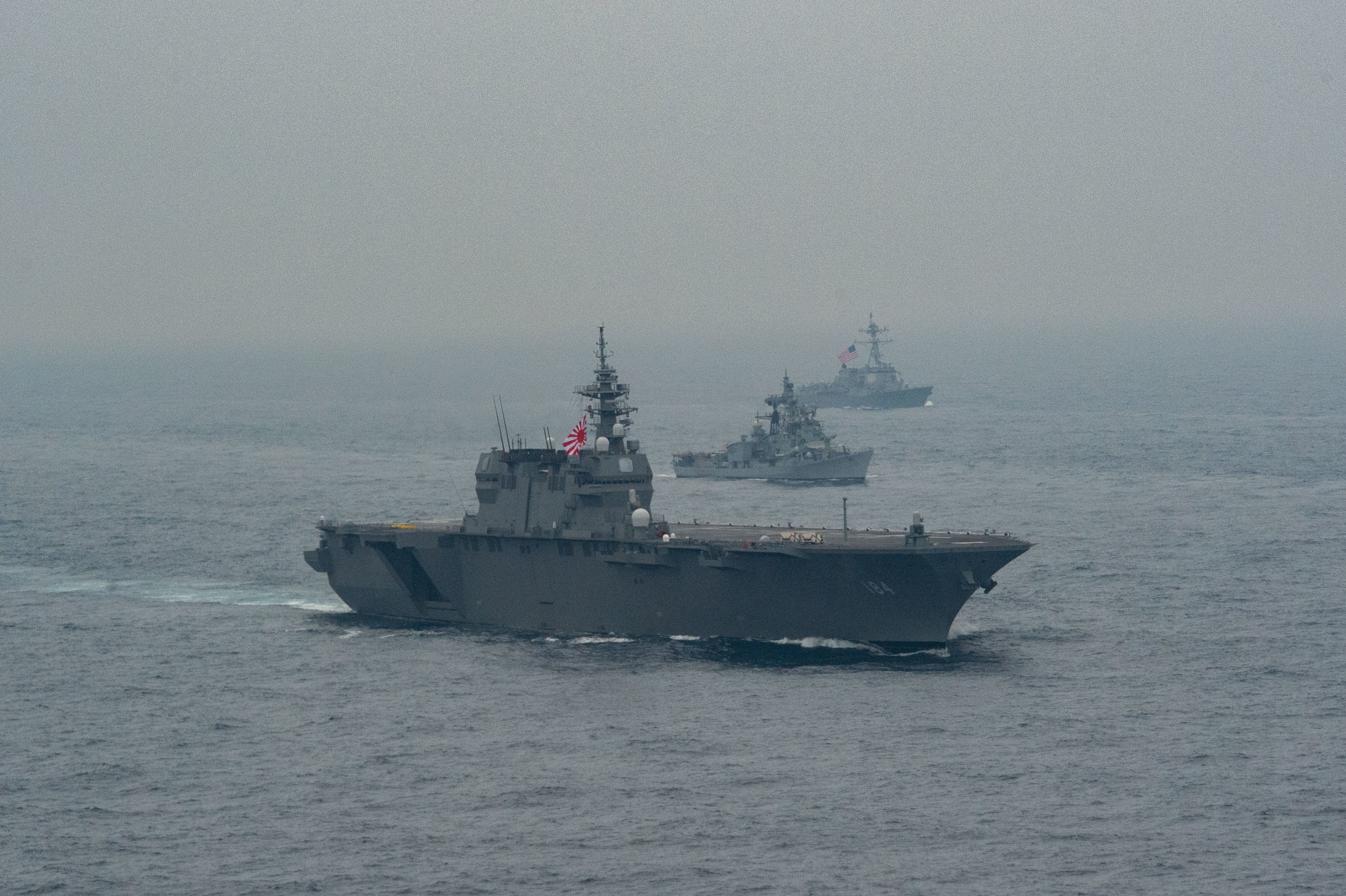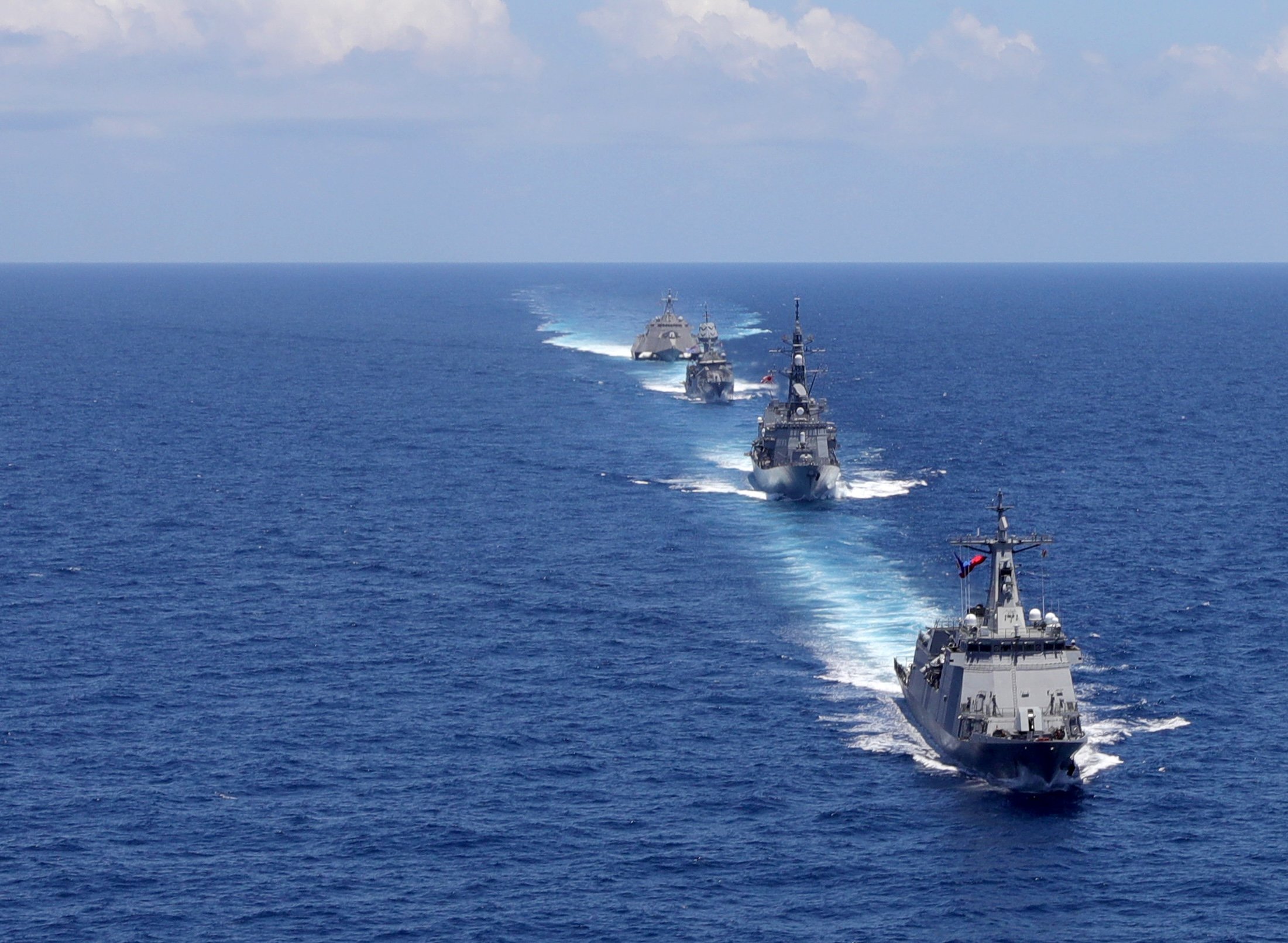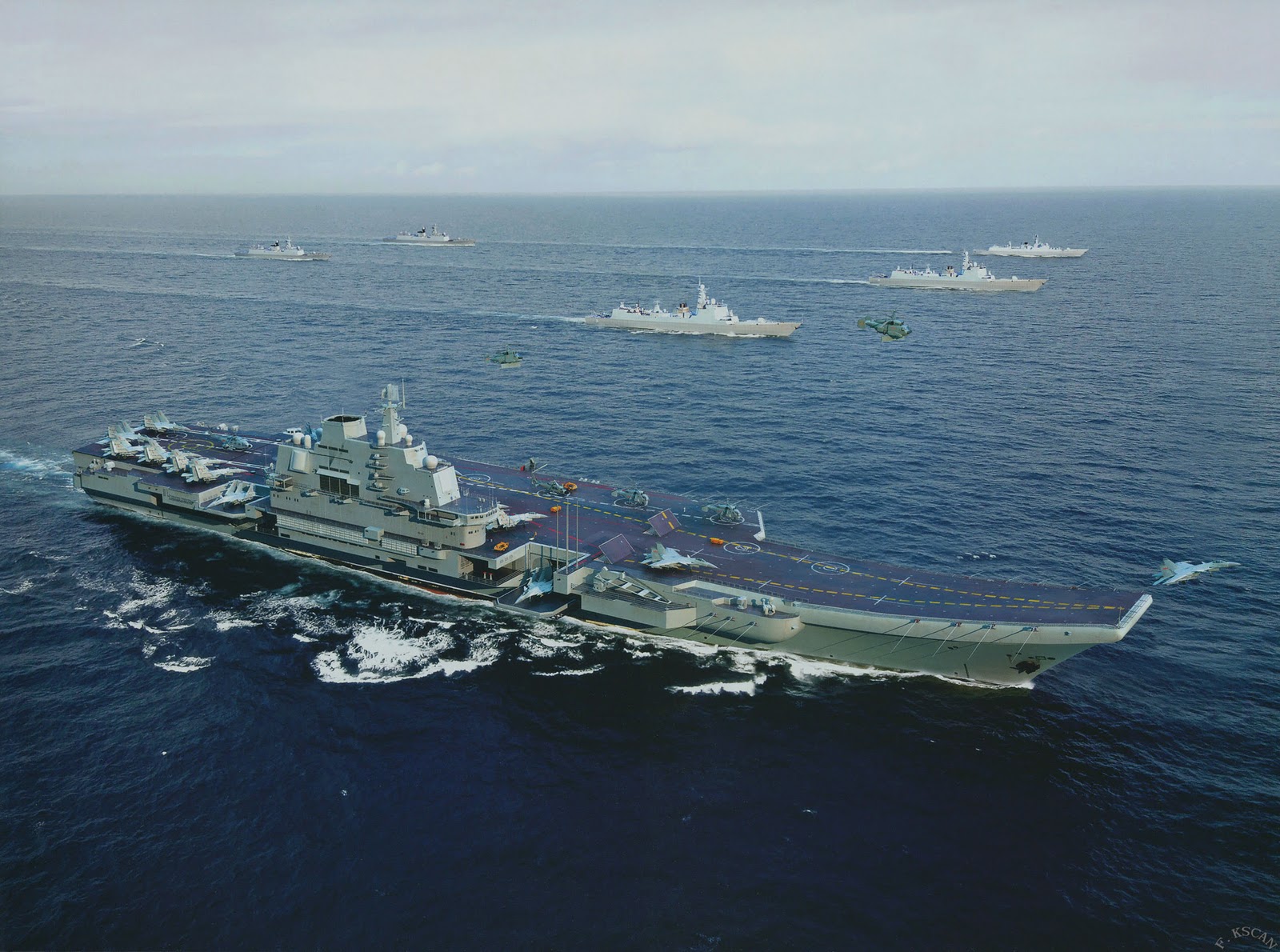
Through its navy, coast guard, a loose collection of armed fishing vessels, and a network of military bases built on artificial islands, Beijing has gained de facto control of the South China Sea, a panel of Indo-Pacific security experts said Friday.
And the implications of that control — militarily, economically, diplomatically — are far-reaching for the United States and its partners and allies in the region.
“Every vessel [sent on a freedom of navigation transit] is shadowed” by a Chinese vessel, showing Beijing’s ability to respond quickly events in areas it considers its own, retired Marine Lt. Gen. Wallace “Chip” Gregson said during an American Enterprise Institute forum.
Gregson added that U.S. freedom of navigation operations do little to protect American maritime rights, or the right of allies like the Philippines, Vietnam and Brunei.
The challenge over control in waters claimed by many other nations in addition to China has to be managed. Otherwise, U.S. allies will be reluctantly pushed to work with China because there is no steady American presence across the board in this key part of the globe.
To see how much has changed recently, all the panelists said look to what leaders are saying now about China’s aspirations.
Chinese President Xi Jinping has set forth a public goal of complete recovery of all lost territory.” In addition to the South China Sea’s reefs, rocks and shoals, Roger Cliff, of CNA, said Xi’s declaration also means, “I’m looking at you Taiwan.”
Cliff said the Chinese armed forces are expanding to include large-deck carriers, destroyers the size of U.S. Aegis guided-missile cruisers, more submarines, a strategic bomber and airlift force. Research into hypersonic and laser weapons was viewed in China as a complementary element in a strategy to project “political influence in regional and world affairs” beyond its membership on the U.N. Security Council.
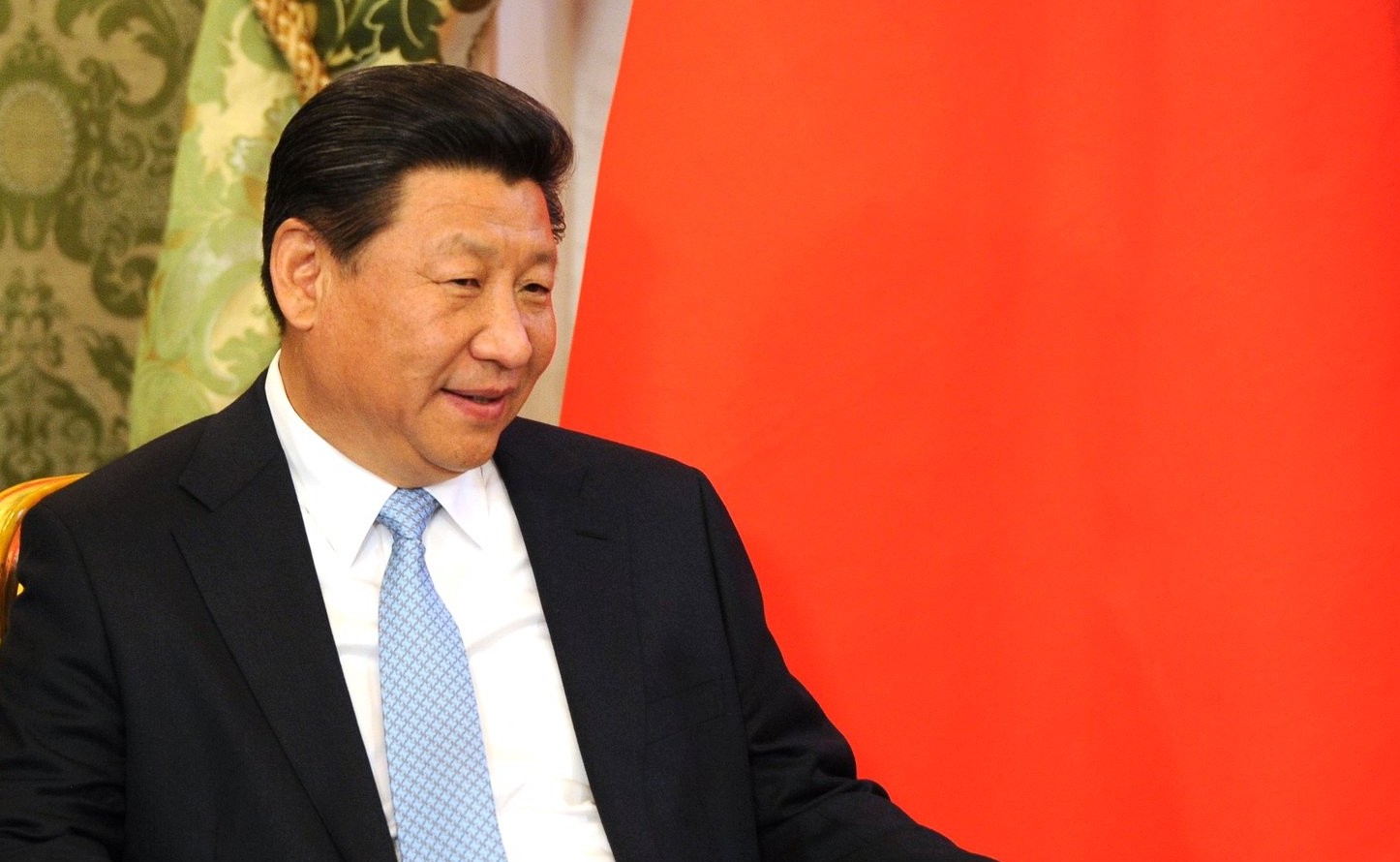
Xi has stressed the importance of a campaign to exert “cultural influence outside Asia,” as it did into the mid-19th century and Japan does now. At the same time, it is flashing its economic strength through the Asian Pacific Investment Bank, which has attracted traditional American allies like Thailand and the Philippines, and its “One Belt/One Road” initiatives in building and controlling infrastructure from highways to dams to ports in programs stretching from Asia into Africa, Europe and the Caribbean.
Gregson termed the decision to pull the United States out of the Trans-Pacific Partnership “a very damaging blow” as it opened ways for China to fill a trade and investment gap with the bank and infrastructure initiatives. He added the imposition of tariffs on allies most recently over steel and aluminum as creating more rifts in what should be stable relationships with nations who have shared goals.
The way the Chinese see it, only one nation could block them from reaching those goals, and that is the United States, he said.
“The United States was going to have to work harder and smarter” to compete with China, Nathan Freier, of the Army War College, said. He called for more concrete action than “its two half-hearted rebalances” toward the Pacific under the administrations of George W. Bush and Barack Obama.
This means a shift in U.S. thinking and strategy to recognize, that with China, America will be in a state of “persistent competition for advantage.”
Thomas Donnelly, of the American Enterprise Institute, said, the United States is “missing an opportunity to impose cost on China,” particularly for its territorial assertiveness. “It is a global competition [with its] principal theater East Asia maritime.” He added current U.S. strategy does not address that point well enough.
The planned June 12 summit between President Donald Trump and North Korean leader Kim Jong-un later this month or in the future has created a new dynamic in relations among American allies in the Pacific and with China.
During the panel discussion, he mentioned that China also has viewed the Korean Peninsula “as being part of the first island chain” where it can and does exert its greatest influence, Donnelly said.
Gregson said that initially the United States defense perimeter in the Pacific after World War II did not take in Korea. The result of that miscalculation was the invasion of South Korea by Kim’s grandfather and later Chinese intervention in the war.
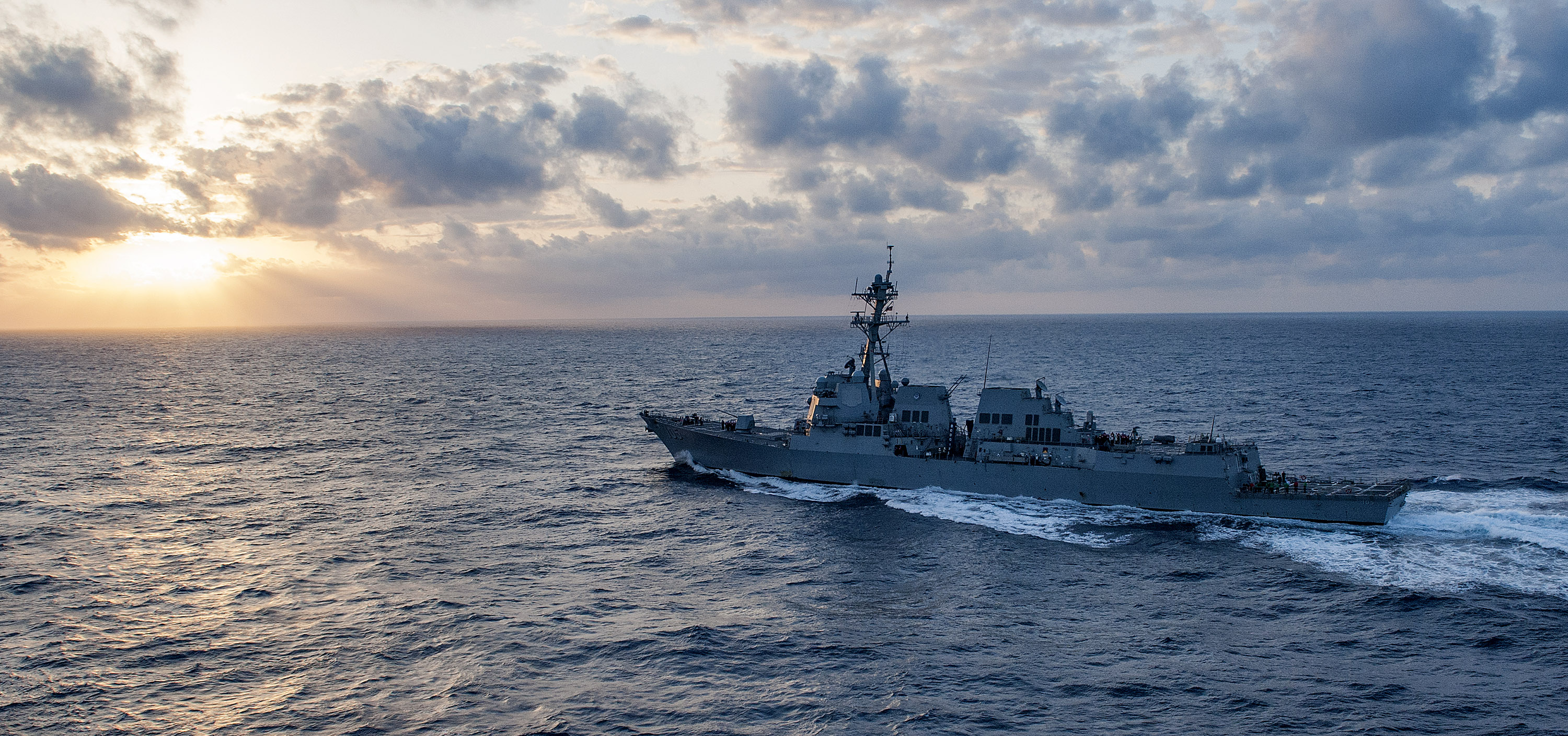
For Trump, Freier said the president needed to be very careful in discussing American troop levels in Korea and joint exercises during the negotiations, regarding them as more than bargaining chips. Likewise, the president also needed to realize that reaching an accord with Kim on intercontinental ballistic missiles threatening the United States does not lessen Pyongyang’s ability to strike Japan with shorter-range missiles — a continuing security concern in Tokyo.
“We are in grave danger of a fraying relationship” with important allies,” he said. The time is now for the United States “to make a choice” and “push our chips to the center of the table” in containing China and maintaining a stable Indo-Pacific, Freier said.
The panelists said dropping China from the invited nations to the Rim of the Pacific exercises was a step in the right direction but not a be-all and end-all in ending China’s bullying of its neighbors in a host of ways.
Donnelly added, “We’re not a status quo power,” and one of the reasons East Asia is so economically prosperous now and militarily quiet is “we infused our political values into [these] societies,” citing the democracies in Japan, South Korea and Taiwan. “They are very different societies than before we began interacting with them day-by-day,” he said.




